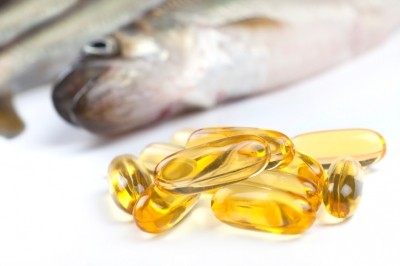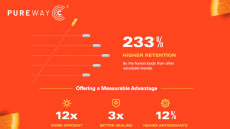Ambiguous intake levels, lax regulations and marketing ploys? Not so, says supplements industry

The global vitamins and dietary supplements (VDS) sector tallied up at €68.6bn for 2011, according to Euromonitor data, and is set to almost be at parity with the over the counter drugs (OTC) segment by 2016 – worth about €81.5bn.
In a Euromonitor blog, Stephanie Prymas, US-based consumer health analyst, suggested the VDS sector was ‘too much of a good thing’ and referenced research suggesting excessive consumption of VDS may be detrimental to health.
However, Graham Keen, executive director of the Heath Food Manufacturers' Association (HFMA), said the sector, “has an exceptional record of both safety and efficacy, in the UK and worldwide.”
The Council for Responsible Nutrition (CRN) in the UK and US (unaffiliated) both slammed the notions that intake levels are ambiguous and toxicity levels unknown.
Fog, art, science...
Duffy MacKay, vice president for scientific and regulatory affairs at CRN US, told NutraIngredients: “ULs are not ambiguous; when done properly they are science-based.”
Professor David Richardson, the scientific advisor to CRN UK, said there are, “three authoritative scientific risk assessments on all the essential nutrients”.
The European Food Safety Authority (EFSA), the US Institute of Medicine and the UK Expert Group on Vitamins and Minerals have all studied, evaluated and published ULs considering all sources including conventional foods, fortified foods, and supplements, said Richardson.
The World Health Organization, the EC’s Scientific Committee on Food and Codex Committee have also been involved in promulgating and assessing risk levels.
Prymas said that while upper and lower levels had been set, “some research raises discussions on the clarity of these and there are suggestions that there may be some fog.”
“In essence, determination of ULs is currently more art than science,” the blog read.
Into the black?
Prymas said that the VDS sector has a “laxer regulatory oversight” than over the counter drugs, with no need for pre-market approvals like OTCs in the US and fewer approvals in the EU.
Keen said that the UK is, “one of the toughest regulatory environments in the world”. There are regulatory and enforcement bodies, including the Food Standards Agency, the Advertising Standard Authority, the Medicine and Healthcare products Regulatory Agency and Trading Standards, overseeing the sector, he said.
Keen noted a fine line between appropriate regulation and over-regulation that can create grey and black markets. “The last thing we want is for consumers to be driven to unregulated or less-regulated sources of supply,” he added.
MacKay said that different regulations are appropriate: “VDS regulations are specifically designed to balance consumer access with consumer safety.”
“In general vitamins and minerals have a different safety margin than prescription and OTC drugs,” he said.
Professor Richardson suggested that the, “risk of excessive intakes is relatively low for the majority of nutrients”.
The lack of significant numbers of adverse events and reports like those issued last week by EFSA that found there were no over-consumption issues for omega-3s, vitamin D and calcium, confirm Richardson’s position.
Keen pointed to UK data that showed a “significant proportion” of the population do not achieve nutritional sufficiency through diet alone. “As such, daily supplements provide important nutritional insurance for millions of users looking to safeguard their nutritional intake.”
‘Industry must act responsible’
Prymas has called on industry to act responsibly in its push of the VDS sector, noting they were sometimes positioned as alternatives to whole foods, something she said could, “lull people into a false sense of security”.
“In terms of business, it makes sense to push supplements but long-term it does need to be tailored to the individual. It’s important to establish a level of credibility and from a consumer education standpoint, industry needs to talk about intake levels,” she said.
Industry did engage in consumer education, she said, but shoppers were still often left in the dark about which supplements to purchase – and why.
However, MacKay pointed out that this kind of education does take place, often directly via label claims at the point of purchase.















